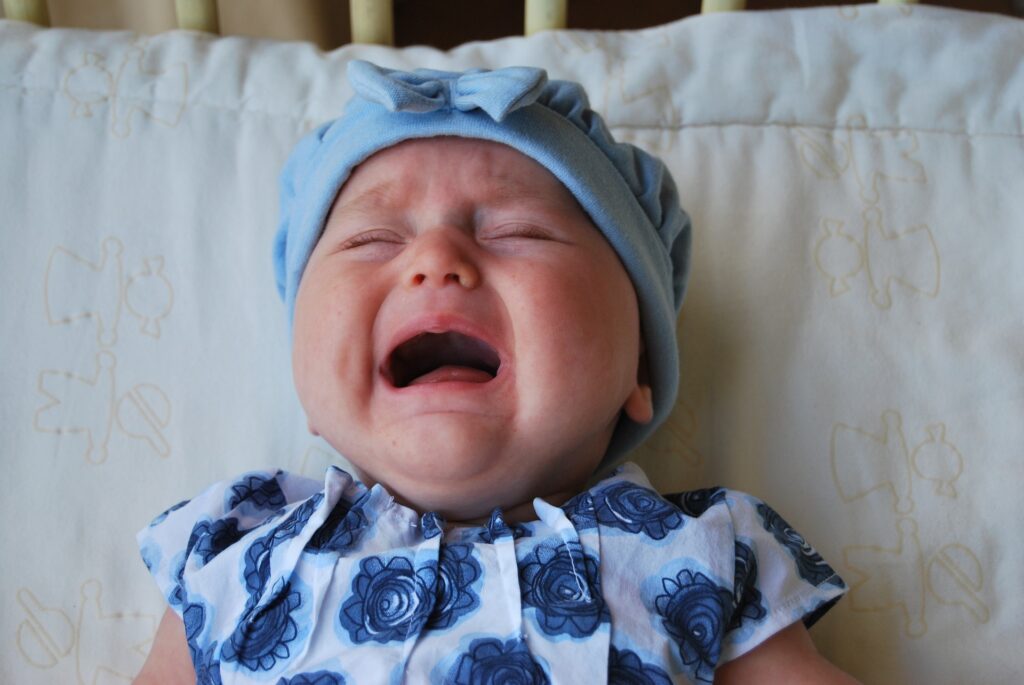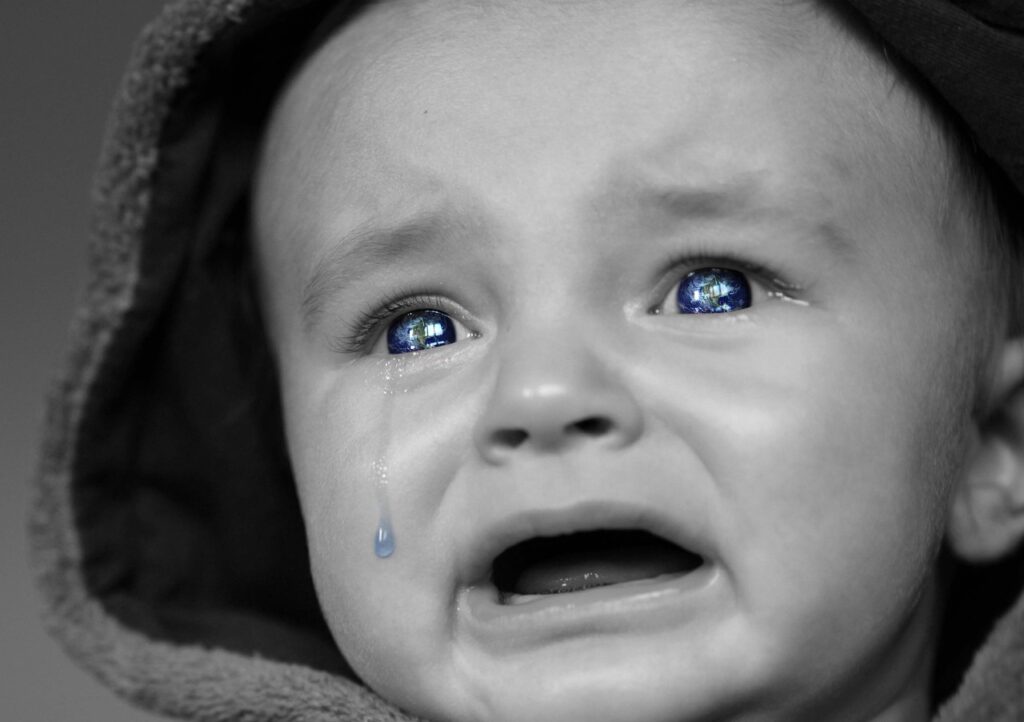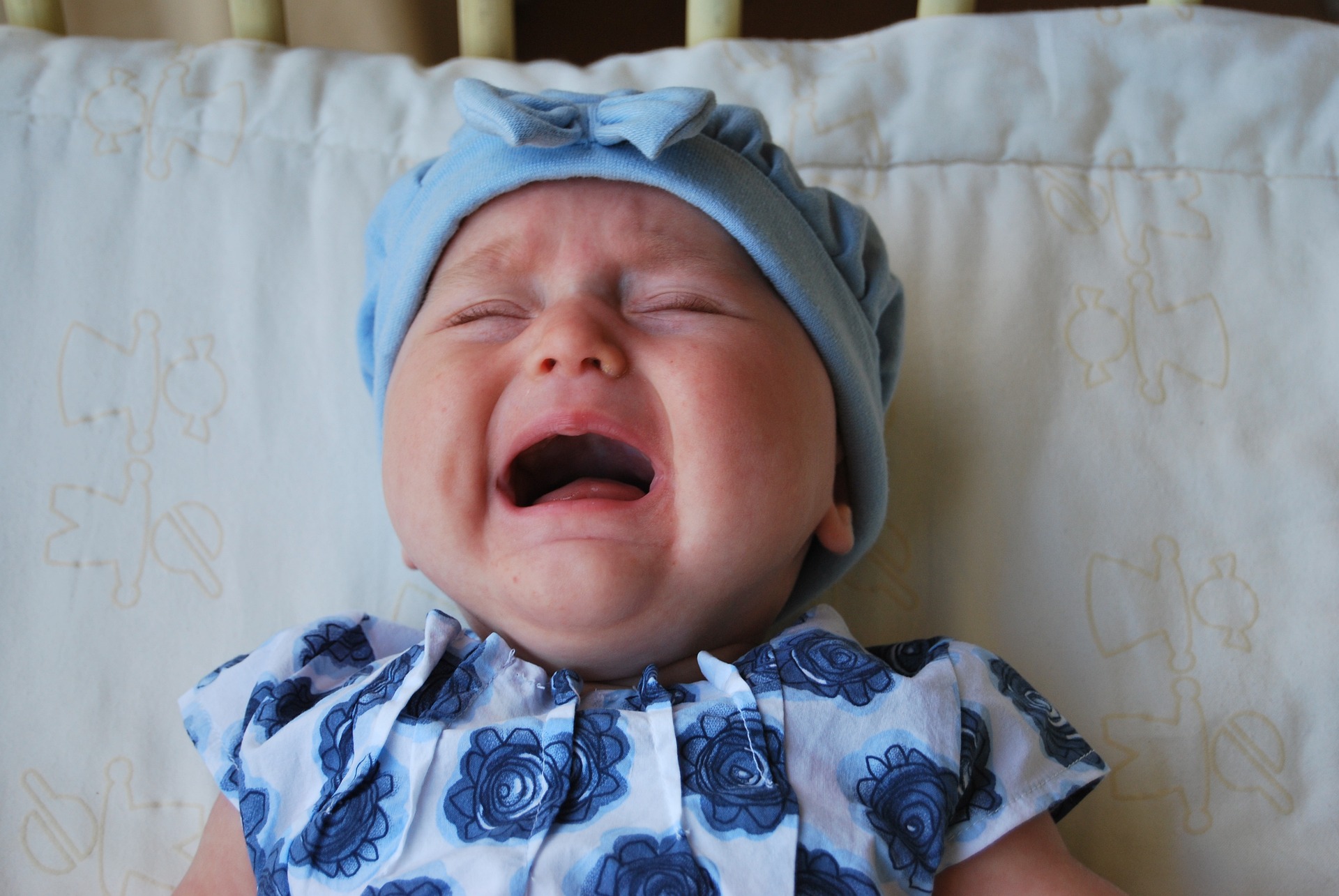Top 7 Reasons Why Your Baby is Holding Poop: 5 Management Tips

A baby holding poop is a common scenario that parents and caregivers have to bear with. It is one of the issues that I discussed in this article. As a new parent, I pitied my son who’d produce what, as a first-time parent, I considered “strange” sounds. I would later come to learn that the sound was due to him blocking poop.
The nearly traumatizing experience made me develop an interest in learning about poop holding in babies. In this article, we will focus on reasons why your baby is not passing stool and find solutions to that. Without further ado, let’s get started.
Why Do Babies Hold Poop?
There are several reasons that could lead to babies holding poop. Here are the top seven:
1. Constipation

Constipation is the leading cause of babies holding poop. Preliminary research carried out revealed that the prevalence of constipation in babies varied and affected passing stool. In some cases, the constipation makes the poop dry or fill up with gas, making the baby withhold the poop instead of passing it.
Constipation accounts for over 90% of stool blockage in babies under five months.
2. Sense of Assertiveness
Humans are selfish and like to assert authority from a young age, including holding poop.
If you have a toddler, you might find that they will refuse to use their potty, even when they are pressed. The primary reason for holding the poop is because they don’t want to give in to your request/demand.
3. Anxiety and Sensory Issues
Another reason why your baby might have blocked poop is due to sensory processing issues. They could become overly anxious about smelling or seeing the poop. If the baby experiences such, they would hold the poop.
4. Lactose Intolerance
Lactose intolerance refers to a condition where humans fail to digest lactose (sugar) in milk. Babies are highly susceptible to lactose intolerance, especially cow milk.
Lactose intolerance results in constipation, which may block the passing of stool.
5. Difficult in Potty Training
Potty training has to be another issue that parents have to bear with since most toddlers are used to diapers.
Anytime you take off their diapers to let them poop on the potty, they become paranoid and, as a result, hold poop.
6. Health Issues
There are several issues which may cause the baby to hold their poop, either involuntarily or voluntarily. A baby is likely to hold poop if they are suffering from:
- Pelvic floor dysfunction
- Fecal impaction
- Hypothyroidism
- Irritable bowel syndrome
7. Overindulgence in Playing
They as they as playful as a kitten, maybe because they have never come across a baby. Babies would rather stay all day long playing than visit the washroom or use the potty.
If you see your baby holding poop for a long time, watch their playing schedule.
What are the Signs of a Baby Holding Poop?
One thing with babies holding poop is that the signs will always show. A baby holding poop will have these signs:
- Reduced appetite
- Clenched buttocks
- Red face due to straining
- Stiffing the body
- Urine leakage
What are the Effects of Holding Poop in Babies?
As a parent or caregiver, you might be worried whether your baby holding poop for some time might have any negative effect. Your baby holding poop might result in these complications:
- Urinary tract infections.
- Abdominal cramping.
- Stomach pain.
- Abdominal distension.
- Hardening of the stool.
5 Ways to Solve Poop Holding in Babies
You have learned about the leading causes of blockage of bowel movement in babies. You also know how to spot the signs of a baby with poor bowel movement. How do you solve these issues? These 5 tips will come in handy:
A. Basic Education to the Baby
Suppose the baby is at an age where the baby can understand directives and instructions on toilet use and start instantly. The best way to educate your baby on how to stop holding poop is through positive reinforcement.
If the baby is above 2 years old, you can show them potty training videos.
B. Try Different Strategies
As discussed earlier, babies might hold poop due to underlying health conditions. Give the baby a warm bath or exercises to ease the stomach muscles and aid in bowel movements.
C. Change their Diet
You can reduce constipation, which makes babies to hold their poop, by changing their diet. If you have been feeding the baby with junk food, switch to food rich in fiber, such as leafy greens, fruits, and cereals.
D. Hydrate Them
As you feed the baby with a fiber-rich diet, remember to hydrate them. You can give the baby adequate water, smoothies, and broth to alleviate constipation that may arise from giving them dry, fiber-rich foods.
E. Increase the Frequency of Activity Levels
Another way to help your baby avoid holding poop is increasing their activity and exercise levels. Tummy training them might ease the stomach muscles, making them poop easier.
FAQs on Poop Holding in Babies
How long should a baby go without pooping?
It is normal for babies to hold poop for three days. In severe constipation cases, the baby might go for up to 2 weeks without pooping. Should your baby stay for long without pooping, take them to the hospital for examination.
How can I teach my baby to push poop out?
First, create a conducive environment for them, away from noise and other people. Second, let them sit on the toilet seat or potty and encourage them to push the poop out.
Can holding poop make my baby develop appendicitis?
The leading causes of appendicitis, a condition characterized by swelling of the appendix, are diverse. Parasitic, bacterial, or viral infections may cause appendicitis. If feces blocks the tube connecting large intestines to the appendix, the baby might develop appendicitis.
Takeaway
Your baby is likely to hold poop due to the issues mentioned above. A baby holding poop will also likely have the signs discussed earlier. Depending on the period that the baby holds the poop or their signs, you might be forced to take them to a pediatrician for diagnosis. You might be paranoid but take poop holding as yet another parenting hurdle to overcome.



